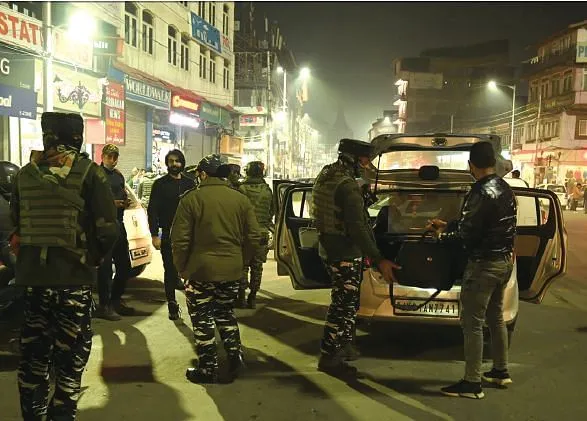Srinagar: As the violence resulting from incidents of terrorism is ebbing, the focus of security agencies in general and J&K Police in particular has shifted to cracking a whip on the drug mafia while experts have called for stringent measures to keep a check on the drug violence.
To stop further menace of drugs growing exponentially and engulfing people of all age groups in Jammu and Kashmir the law enforcing agencies and people working on drug de-addiction are taking strict measures to overcome the issue of drug menace.
The gravity of the problem can be gauged by the fact that seven gruesome murders occurred within six months, three of them involving sons killing their mothers.
These incidents have shaken the very essence of Kashmiri society and disturbed every thinking individual.
Since then scores of drug abusers have been arrested in a Kashmir-wide crackdown against the substance abuse.
This is for the first time in the history of Kashmir that such gruesome cases of violence have been reported and that too repeatedly.
The drug addiction has led to an increasing rate of crime in Kashmir.
Besides, the very nature of drug addiction in Kashmir is also changing.
Officials said that in such a situation, the entire focus of the government has come to dealing with this menace of drug addiction and cracking a whip on the drug mafia.
The officials and experts have suggested several measures to overcome the issue of drug abuse and take steps for counselling the youth who have gotten involved in drug abuse.
“Security agencies, particularly J&K Police, are known for anti-insurgency operations but now we have shifted our focus on drug peddlers,” a senior Police officer said.
He said that in the year 2022 under the Narcotic Drugs Psychotropic Substances (NDPS) Act, Police registered 1021 cases and arrested 1700 drug peddlers including 138 notorious drug peddlers.
During the same time, the senior Police officer said that the security agencies seized enormous quantities of contraband including 212 kg charas, 56 kg heroin, 13 kg brown sugar, 4.355 tonnes of poppy straw, and 1.567 tonnes of fukki.
He said that the Police and the civil administration also launched the Nasha-Mukt Bharat Abhiyan – an initiative started by the Ministry of Social Justice and Empowerment on August 15, 2020, to eradicate the menace of drug addiction in 272 districts across India.
“Large-scale awareness programmes have been held in schools, colleges, universities, and within the communities,” the senior Police officer said.
He said that besides carrying a crackdown on the drug peddlers, they were carrying out regular awareness programmes about drug abuse.
“We are concerned about these murders and its fallout more than anyone,” said another senior Police officer.
He said that they were putting in every effort to nip the evil of drug abuse in the bud.
The senior Police officer said that the security agencies, especially the Police, had repeatedly appealed to the people of Kashmir to come forward and support their campaigns to prevent destruction of youth through drugs.
“There has been a positive response,” he said.
In context of recent murders and other killings in Kashmir, Registrar Institute of Mental Health and Neurosciences (IMHANS), Kashmir, Dr Syed Mehvish Yawar said that most of the violence in this world was because of the “so called sane people”.
She said that mental illnesses were predominantly associated with “self-harm” rather than “harm to others”.
“Homicides because of mental illness are rare and are not a prototype of mental illnesses,” she said.
Dr Mehvish said that the cardinal paradigm of mental illnesses was “suffering to the self”.
“The link between mental illnesses and violence is modulated by substance use many times. Single use of substances (like cannabis) cuts the brakes in a way that these people might act on their delusions and hallucinations and I am not pre-judging by the recent violence,” she said.
Dr Mehvish said to prevent such incidents in the future; she would suggest certain strategies that include: “Mental illnesses are diseases of the brain. Treat them like that only. Don’t camouflage them under any cover.
“With thrust towards nonrestrictive measures, liberty, humanely and dignified treatment for mental illnesses, it is imperative to have Mental Health Care Act logistics and knowledge base on ground including judicial boards.
“Admission facilities with requisite trained manpower support in all districts for acute care.
“Rehabilitative care in the form of halfway homes in all districts
“To make sure that the whole population knows that taking substances neither gives pleasure nor creates spirituality, it makes the brain really sick and diseased.”







